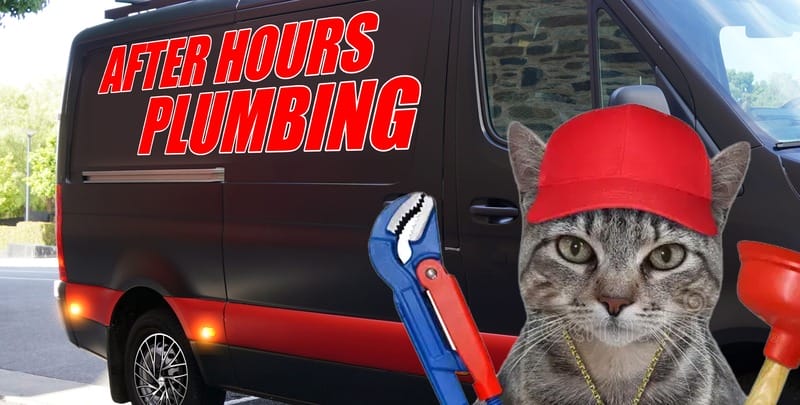The Importance of Removing Air From Your Solar Water Heater

Are you looking for a cost-effective solution to reduce the energy costs of heating your water? Installing solar hot water systems is economical and highly efficient. But did you know that it's important to regularly remove air from the hot water system to maintain its optimal performance?
Like any hot water system, most solar water heaters may encounter a range of issues over time, including the presence of air in the system. If you’re wondering how to remove air from a solar water heater, you’ve come to the right place.
Discover why air removal is essential for improving overall efficiency, and we’ll provide step-by-step instructions on how a professional can perform this task efficiently. Keep reading to learn how removing air from your solar water heater can provide you with a wealth of benefits!
Why is Solar Hot Water System Air Removal So Crucial?
Air trapped in solar hot water systems can impede its energy efficiency, which means you ultimately pay more as the system draws on excess power to deliver a higher level of performance. When air bubbles form and occupy the collector or storage tank, they create insulating layers that prevent the sun’s energy from effectively heating the water. As a result, your solar water heater may produce less hot water, leading to higher energy costs.
Additionally, air in the system can cause fluctuations in temperature, making it challenging to maintain a consistent supply of hot water, especially during cold weather or cloudy days. To ensure your solar water heater operates at its peak efficiency, removing any trapped air is essential.
How Licensed Technicians Remove Air from Solar Hot Water Systems
First and foremost, it’s essential that we state that removing air from solar hot water systems is something that only a licensed technician can do. For safety, compliance and warranty reasons, this is not a DIY task. That being said, this is what a qualified and licensed technician will do to remove the air from your solar hot water unit.
1. Turn off the power supply – As any experienced plumber knows, safety always comes first when working with any system that heats up, including a solar water heater. Thus, before they commence the air removal process, they’ll switch off the power supply to the solar hot water system. This precautionary step prevents accidents and ensures a safe working environment.
2. Identify the air removal points – Expertise lies in knowing where to look, and in the case of removing air from your solar water heater, a plumber will be able to identify the key air removal points. These points are strategically placed within the system to target areas where air is most likely to accumulate. Typically, you’ll find these points at the highest and lowest parts of the system, including the collector, storage tank, and solar panels.
3. Gather necessary tools – The plumber will have all the essential tools on hand, including a spanner, a bucket and a hose. With these tools at the ready, the plumber will be able to access the air removal points with ease.
4. Open the air removal valves – Once the plumber has located the specific points, they will use the spanner to open the air removal valves. Though they might hear a hissing sound and experience some hot water escaping from the valve in the system, this is entirely normal and indicates that the air removal process is well underway.
5. Allow air to escape – The plumber will then allow the trapped air to escape from the system. If all things go to plan, they’ll notice a warm, steady stream of water flowing from the air removal points. This is a positive sign, indicating that the air pockets are dissipating, thus improving the efficiency of your solar hot water system.
6. Close the valves securely – Once the air removal process is complete and the solar water heater is providing a consistent water flow, the plumber will close the valves. They’ll tighten them securely shut with the spanner to ensure the system remains free from future air ingress.
The Importance of Proper Solar Water Heater Installation and Maintenance
Expertise in maintaining a solar water heater also involves understanding the importance of proper installation. To prevent air from entering your system, ensure that all components, such as solar collectors, storage tanks, and solar panels, are securely installed and adequately sealed. A well-installed system is less prone to air infiltration.
Regular maintenance is paramount to maintain your solar water heater’s expert level of performance. Schedule routine checks to inspect for signs of air accumulation within the system. Address any issues promptly to ensure your solar water heater continues to generate hot water efficiently.
The Benefits of a Gas Booster for Solar Water Heaters
For those living in regions with extended periods of cloudy weather, an expert tip is to consider installing a gas booster. This additional component can complement your solar water heater system by providing extra hot water when needed. It ensures a consistent supply, even overcast days, offering uninterrupted hot water service.
Removing air from your solar water heater is a vital maintenance task to ensure optimal efficiency and cost-effectiveness. Always prioritize safety and regular maintenance by hiring a professional for a hassle-free experience with your solar water heater.
Contact the Solar Hot Water Systems Specialists Today!
When keeping your solar water heater in top-notch shape, After Hours Plumbing has your back. We’ve got ground-level expertise to tackle any issue, from solar hot water booster element enhancements to roof-to-valve fluid checks. With the Aussie sun on our side, our electric team knows how to install and get your system heated up quickly.
So, why wait? Contact us today for a friendly chat, and let’s pump up the warmth in your home. Don’t let the temperature drop or the grid unit freeze – we’ve got you covered down under, right here.
Please note: This information is provided for advice purposes only. Regulations differ from state to state, so please consult your local authorities or an industry professional before proceeding with any work. See After Hours Plumbing’s Terms & Conditions here.
